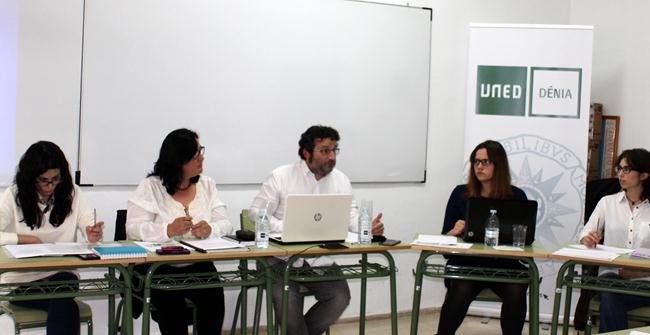The cycle of debates on topical issues held during this semester at the UNED Dénia discussed last week on housing rights and evictions and the problems they generate in the public.
In the discussion attended María José Suárez and Blessing Soler, representatives of the Platform of People Affected by Mortgages Stop Evictions; Óscar MengualCouncilman Housing Dénia City Council and an expert in intellectual property lawyer; and Marianne López and Anaïs Palop, coordinators of the day, who had the opportunity to discuss the issue with students and teachers at the school.
Among the issues raised highlighted the need for the Spanish Constitution include access to housing as a fundamental right, as an indispensable tool to fight evictions. Also the role of banks was protagonist, since Óscar Mengual specified that also includes the possibility of payment in kind or restoration of debt (for five years only interest is paid more than 25%), although "Before the payment date, a new appraisal of the house is made, and the owner also has to take into account the capital increase", He said.
In this regard, attendees and representatives of the STOP Evictions platform agreed that the mortgage debtors have very little legal backing due to the "abusive clauses in the real estate sector".
The paper concluding that banks collected "They have abused much on the issue of evictions and are selling their toxic products to vulture funds" and she was advocated "to make citizen pedagogy to make the population understand that it is not essential to be a homeowner, but the rental culture must be encouraged".
During the discussion session it was stated that the profile of the terminally ill has changed over the last four years. María José Suárez and Benediction Soler commented that "Currently, the evicted is more individual and has more family support. The new evicted is less vulnerable and participates less in the anti-eviction movement".
As a solution to this situation was proposed "more financial aid to those affected, to demonstrate their social exclusion; and improve information, so that citizens know the ways to which they can turn, and local administrations dominate the method of action."







